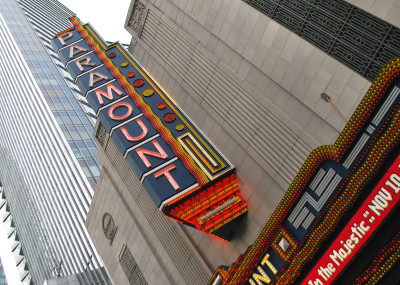
Following conversations about how to bolster the arts community, Boston is moving forward to create a cultural plan for the City.
Boston Creates, part of Boston Mayor Martin Walsh’s Office of Arts and Culture, is in the process of gathering information in order to better understand how to implement and improve the arts community.
The planning and preparation process for Boston Creates began in March, according to the Boston Creates website. The city is now hosting community conversations and will draft a plan by June 2016.
MASSCreative, a coalition for people who support the arts, has contributed to the planning process that began in March, said the coalition’s Executive Director Matt Wilson.
“City funding of the arts has always been a priority, and space to create, rehearse and perform is also an issue that’s risen to the top,” Wilson said. “… We want to make sure that there is space for the arts and culture community to thrive.”
The first Boston Creates town hall meeting took place in Jamaica Plain on June 2. The city will hold its second town hall Nov. 2 to decide how to dedicate space to the arts.
“They’re going to report back for what’s their fact gathering over the past six months, and come back and tell and kind of report back on what they’ve heard from the public,” Wilson said. “… We’ll be there and we are encouraging the community to come out and hear what they accumulated and I assume there will be time for people to ask questions.”
Wilson said the initiative began with Walsh’s effort to create a cultural planning process for the city.
“Mayor Walsh has always been a strong supporter of arts and culture and throughout the campaign, he talked about a number of things that he would do in Boston, and one of his quotes is that he has pledged to lead an arts renaissance in Boston,” Wilson said.
Walsh appointed Julie Burros as the first Chief of Arts and Culture to align this area with the City’s efforts, The Daily Free Press reported Sep. 26, 2014.
As Boston looks to support arts and culture, problems have arisen in the theater district.
On Oct. 7, Boston University severed its 33-year partnership with the Huntington Theatre Company, the FreeP reported.
Emerson College, which currently owns the Colonial Theatre in the Theater District, is in the process of determining what to do with the space, said Emerson College President Lee Pelton. One of the options is to turn the space into a dining hall for students, Pelton said in reference to an Oct. 7 article by The Boston Globe.
“We have been engaged in a thorough, thoughtful, and deliberate process to explore and examine the Theatre’s potential long-term use,” Pelton said in an Oct. 8 statement. “We are not in a position to make public other options and discussions we are having with individuals and organizations at this time.”
On Wednesday, Emerson faculty passed a resolution for Pelton and the Board of Directors to reconsider the plan.
The Colonial Theatre, which opened in 1924, is the oldest operating theater in Boston.
Several residents said they hope to see further discussions about keeping the arts relevant in the city.
Ryan Bernardo, 22, of Back Bay, said Boston should take initiative to provide the proper venues for talent.
“I’ve noticed in the past year what venues have been closing down, and even though it sucks it’s not a huge surprise to me,” he said. “I’ve always felt like the scene here in Boston, there’s a lot of talent here, there’s no doubt about it, but there’s kind of a disconnect between that and how people feel about properly promoting stuff like that.”
Bernardo said he looks forward to seeing how the situation unfolds in the future.
“I feel like for any scene to be really awesome you kind of can’t just have the talent, you have to have the balance between the talent and the guys promoting it,” he said. “I am hopeful though because I have been seeing a lot of [people] who have been trying to change the situation.”
Katie Connors, 29, of Brighton, said that while she likes the new art that has appeared in the city within the year, she hopes the Colonial will be preserved.
“There was the piece of public art that was on the [Rose Fitzgerald Kennedy] Greenway, [and] on the John Hancock [Tower], that was really cool,” she said. “That theater has been around for a really long time. I feel like there are definitely new things happening, but we need to preserve the older things as well, because that theater’s been around forever.”
Connors added that it is important to keep the younger generation involved in community art discussions.
“Community meetings are great because you’ll always get people who are passionate about the cause,” she said, “but to get the younger generation they should do more on the Internet and there should be more public forms, whether it’s webcast or whatever it is.”














